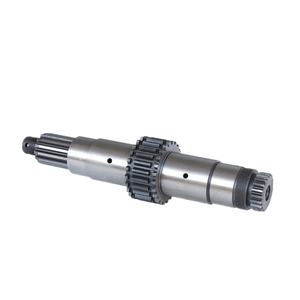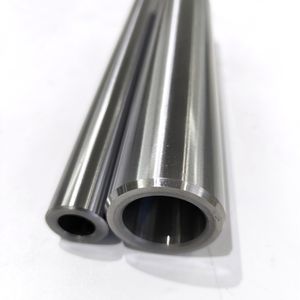PRODUCT PARAMETERS
Description
Introduction to Flexible shaft with stable quality shaft
Flexible shaft with stable quality shaft are important components in mechanical systems used to support rotating parts (such as gears, pulleys or sprockets) and transmit torque. They play a key role in mechanical equipment by connecting the power source with the working parts to ensure the effective transmission of power.
Characteristic advantages of Flexible shaft with stable quality shaft
High precision: adopting precision machining technology ensures the size and shape accuracy of the shaft and improves the transmission efficiency.
High strength: made of high-quality materials with good tensile, compressive and wear-resistant properties.
Reliability: After strict quality control, it ensures stable operation for a long time.
Versatile design: A variety of specifications and types are available to suit different applications.
Easy maintenance: the structure is designed for easy installation and repair, reducing maintenance costs.

(Flexible shaft with stable quality shaft)
Specification of Flexible shaft with stable quality shaft
Adaptable shafts transfer rotational power in between makers where direct connections are not possible. These shafts handle imbalance and resonance successfully. Secure high quality guarantees constant efficiency in various applications. The core element is a high-strength steel cord helix. This layout provides flexibility while maintaining torque transmission. Several layers of steel cables improve sturdiness. Each layer is securely wound to prevent unraveling throughout operation. Protective layers like nylon or PVC protect the shaft from moisture and abrasion. This extends service life in harsh environments.
Shaft sizes range from 6mm to 25mm to suit various machinery. Custom-made sizes are offered for details configurations. Torque capacity differs with dimension and construction. Higher torque designs make use of thicker cable layers for additional stamina. Rotational accelerate to 10,000 RPM are achievable without jeopardizing stability. Precision balancing minimizes resonances at high speeds. This reduces endure linked equipment.
End fittings include square ends, keyways, or splined options. These make sure safe and secure accessory to motors and driven tools. Installations are machined from stainless steel or hardened alloys. Material choice depends on load needs and ecological elements. Threaded collars or set screws lock installations in position. This prevents slippage under hefty loads.
Quality assurance starts with resources choice. State-of-the-art steel cords undergo tensile screening for toughness verification. Automated winding makers ensure uniform layer formation. Each set is examined for dimensional accuracy. Efficiency testing checks torque restrictions and rotational level of smoothness. Stress tests mimic lasting use to identify prospective failings.
Applications span automotive, production, and aerospace markets. Versatile shafts power tools, conveyor systems, and control systems. They are ideal for restricted rooms requiring accurate movement transfer. Upkeep entails normal lubrication and examination for wear. Appropriate care stops sudden breakdowns.
Secure top quality shafts supply reliability popular conditions. Constant manufacturing processes remove defects. Personalization options address unique operational needs. Efficiency stays predictable over extended durations. Individuals gain from minimized downtime and maintenance expenses.

(Flexible shaft with stable quality shaft)
Applications of Flexible shaft with stable quality shaft
Adaptable shafts transfer rotational power in spaces where rigid shafts can not fit. Their layout permits bending about obstacles while keeping torque delivery. Secure quality makes certain regular performance under tension. These shafts are built to handle high-speed turnings, vibrations, and varying loads consistently.
Industries rely on flexible shafts for accuracy jobs. Automotive fixing uses them for grinding, brightening, and reducing in limited engine spaces. Manufacturing lines integrate them right into equipment requiring adaptable power transmission. Stable building protects against failures throughout continuous operation. Clinical tools use adaptable shafts in medical tools for accurate control. Integrity here is important to avoid devices failing throughout treatments.
Stable high quality shafts make use of sturdy products like stainless steel or advanced alloys. Coatings protect against rust, expanding life-span in harsh settings. Limited manufacturing resistances ensure smooth rotation. Warm treatment processes enhance the core, minimizing wear in time. Checking checks for problems, ensuring each shaft meets stringent requirements.
Building tools depends on adaptable shafts for drilling and mixing in confined locations. Mining operations use them in portable devices requiring rugged efficiency. Stable shafts deal with rough conditions without losing effectiveness. Aerospace applications include airplane assembly, where room restrictions call for small solutions. Constant top quality protects against breakdowns in vital systems.
Personalization adapts shafts to specific requirements. Size, size, and versatility are changed based upon usage. End installations match various machinery types. Steady quality stays unmodified even with adjustments. Regular upkeep includes oiling the core and inspecting for wear. Appropriate care makes certain long-term functionality.
Quality assurance concentrates on material selection and manufacturing precision. Automated systems check each step, from cord winding to coating. Final inspections validate torque capacity and adaptability. This focus to information constructs trust in markets where downtime is costly. Flexible shafts with secure top quality decrease substitute regularity, conserving expenses with time.
Robotics integrates these shafts for precise joint movements. The capacity to flex without breaking supports complex automation jobs. Stable efficiency guarantees repeatable lead to making robots. Packaging machinery utilizes versatile shafts to drive conveyor systems smoothly. Regular torque distribution maintains production lines running without disruptions.
Adaptable shafts with stable quality suit settings requiring dependability. Their adaptability and sturdiness make them necessary across markets. Customers focus on shafts that stabilize toughness with adaptability to meet operational needs.
Company Introduction
Established in 2002, Port of Machinery Co.,ltd. focus on metal research and mining machinery spare parts. 2 factories over an area of 13,300 square meters, based on 100+ sets of equipment, our production capacity reaches 12000 Tons/Year. has passed ISO 9001 quality managment system certification in 2008.
Our mainly products are dragline excavator spare parts,rotary kiln spare parts, large modulus gear (gear shaft), gearbox ect. 40+ patents with over 45 years experience to help focus on improve the service life of spare parts. We belive that more than 80% reason of mechanical parts’ working life depends on hot processing (steel making/forging/casting/welding/heat treatment). Eight material engineers will control the quality from the original resource.
If you are interested, please feel free to contact us.
Payment
L/C, T/T, Western Union, Paypal, Credit Card etc.
Shipment
By sea, by air, by express, as customers request.
5 FAQs of Flexible shaft with stable quality shaft
What is a flexible shaft?
A flexible shaft transfers rotational power between machines not aligned straight. It bends around obstacles. It works in tight spaces. The core uses high-quality steel wires. Layers wrap tightly for strength. Stable quality ensures smooth operation under stress.
Why choose a flexible shaft with stable quality?
Stable quality prevents sudden failures. It handles heavy loads without breaking. The shaft lasts longer. It resists wear from friction. Performance stays consistent over time. This reduces downtime and repair costs.
Where are flexible shafts used?
They power tools in automotive repair, manufacturing, and medical devices. Dental drills and industrial grinders use them. They drive boat throttle controls. Stable quality suits high-vibration environments.
How to maintain a flexible shaft?
Clean it after use. Remove dirt and debris. Lubricate regularly to reduce friction. Check for wear or fraying. Replace damaged parts immediately. Proper storage prevents bending or crushing.
How to pick the right flexible shaft?
Match torque and speed requirements. Consider the operating environment. Check temperature and exposure to chemicals. Measure the needed length and bend radius. Verify load capacity. Test for compatibility with existing machinery.

(Flexible shaft with stable quality shaft)
REQUEST A QUOTE
RELATED PRODUCTS
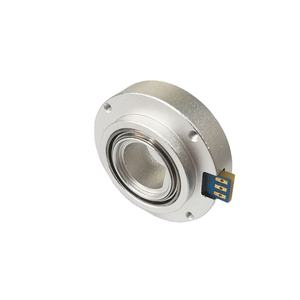
Hot Light weight Eco-Friendly Plating golf putter shaft

Original Transmission Shaft H43E3-30201 for HELI Forklift
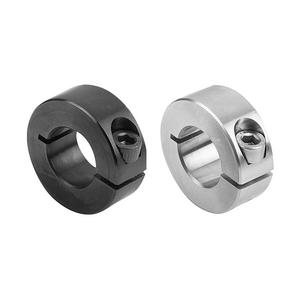
SENP Car Parts Drive Shaft 7L0521101H Axle Shaft Propshaft Propeller Shaft For VW Touareg Audi Q7 Porsche Cayenne
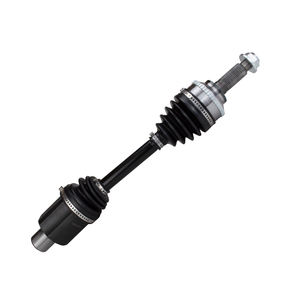
Factory Golf Club Shafts Irons Putter Steel Shafts Golf Iron Shafts

Needle Roller Bearing 25v3724 90364-25012 Iko Bearing K 26x38x25 Auto Shaft Bearings Size 25x37x24.5
